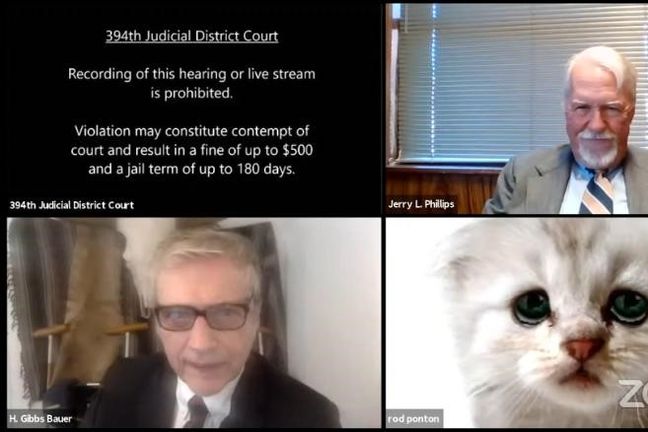On January 22, 2019, G4S Secure Solutions (previously known as Wackenhut Corporation) agreed to resolve a consolidated meal and rest period class action for at least $100 million and up to $130 million. This settlement is aimed to resolve the claims of 13,500 employees and ends fifteen years of litigation.
This is one of the largest class actions in California history for a meal and rest period claims. Although California’s wage and hour laws are among the most technical in America, this settlement serves as a reminder to all employers across the United States how expensive it can be to fail to comply with their jurisdiction’s wage and hour laws.
1. California Meal and Rest Period Law Overview
As aforementioned, California has one of the most technical meal and rest period requirements in the United States. Employers are required to provide their employees with at least a thirty-minute meal period within the required time. During the meal period, the employer must relieve the employee of all duties. If the employer fails to comply, the employer can be subjected to a one-hour meal period premium along with civil and statutory penalties.
Employers in California are also required to permit employees to take a ten-minute rest period for every four hours worked or “major fraction thereof.” If they fail to do so, they can face the same exposure as mentioned above.
2. On-Duty Meal Periods
However, California allows on-duty meal periods. This means the employee remains on-the-clock and eats while at work. An employer must meet specific requirements in order to avoid any exposure for an on-duty meal period. An on-duty meal period is lawful only if all of the following requirements are met: 1) the nature of the work must prevent the employee from being relieved of all duty during the meal period; 2) the employee and employer must have previously entered into a signed agreement authorizing an on-duty meal period; 3) the meal period is paid; and 4) the signed agreement must expressly state that the employee may, in writing, revoke the agreement at any time.
The California Supreme Court has not yet defined or clarified the “nature of the work” requirement. California’s enforcement agency, the Division of Labor Standards Enforcement evaluates it using a multi-factor test. These factors are: (1) the type of work; (2) the availability of other employees to relieve the employee during a meal period; (3) the potential consequences to the employer if the employee is relieved of all duty; (4) the ability of the employer to anticipate and minimize these staffing issues such as by scheduling employees in a manner that would allow the employee to take an off-duty meal period; and (5) whether the “work product or process” would be destroyed or damaged if the employee were given an off-duty meal period.
3. On-Call Rest Period
California law regarding what is a compliant rest period changed following the decision in Augustus v. ABM Security Services, Inc. In Augustus, the California Supreme Court held employees cannot be required to remain “on-call” during rest period. Although the Augustus case involved an employer who required its employees to remain on-call and carry pagers during their rest periods, this decision has affected the laws regarding requiring employees to remain on the employer’s premises for the duration of a rest period. Prior to the Augustus decision, the Division of Labor Standards Enforcement advised employers they could require employees to stay on the premises during rest breaks because they were being compensated for their time.
Following the Augustus decision, the Division of Labor Standards Enforcement reversed its position and issued new guidance regarding rest periods. In short, the agency advised employers, stating they “cannot impose restraints not inherent in the rest period requirement itself.” Further, the agency advised employers to relieve employees of all duties and relinquish control over how employees spend their time during rest periods, as required. However, the agency noted as a practical matter, if an employee is provided a ten-minute rest period, the employee can only travel five minutes from a work post before heading back to return in time.
4. The G4S Lawsuit
G4S Secure Solutions (USA), Inc. employed plaintiffs as nonexempt security officers. During each shift, the security officers took on-duty meal periods. Plaintiffs argued these on-duty meal periods violated California law because they had not signed a valid on-duty meal period agreement and the nature of the security officers’ work did not require an on-duty meal period. They also alleged the security officers were not authorized or permitted to take compliant rest periods which resulted from either being on-call during rest periods or not having sufficient staff to relieve them. The plaintiffs’ meal and rest period claims also gave rise to the typical derivative wage-and-hour claims which include civil and statutory penalties on top of back wages allegedly owed.
Conclusion
The G4S case highlights the potential highly expensive exposure which can result if a California employer fails to abide by the state’s meal and rest period laws. If an employer has an invalid on-duty meal period agreement, plaintiffs may allege that each employee suffered a violation every shift. Similarly, if an employer has an on-call rest period policy or otherwise fails to relieve employees of their duties during their rest periods, plaintiffs may allege that each employee suffered a violation every shift.
The G4S settlement serves as a reminder of how important it is for all employers in any jurisdiction to pay close attention to wage and hour compliance and be mindful the law may change. Failure to comply with these changes could subject employers to high exposure claims. Employers should stay in communication with employment counsel on a regular basis to ensure they are in compliance with their jurisdiction’s wage and hour laws.

 Author: Rachel Donnelly
Author: Rachel Donnelly
 Cannabis Workers Allege Quota to Trim 4 Pounds a Day Violates the California Labor Code
Cannabis Workers Allege Quota to Trim 4 Pounds a Day Violates the California Labor Code
 The Ninth Circuit Reminds Us: Every Word Matters
The Ninth Circuit Reminds Us: Every Word Matters
 NO WAY, PRO SE! The Consequences of Abusing the Judicial System as a Pro Se Litigant in Colorado
NO WAY, PRO SE! The Consequences of Abusing the Judicial System as a Pro Se Litigant in Colorado
 Victim of Financial Mismanagement or Unlawful Retaliation? New Jersey City University Program Founder Claims School Retaliated After Reporting Alleged Sexual Harassment
Victim of Financial Mismanagement or Unlawful Retaliation? New Jersey City University Program Founder Claims School Retaliated After Reporting Alleged Sexual Harassment
 “Real Housewives” Gets a Reality Check
“Real Housewives” Gets a Reality Check
 Missing a Chapter: Insufficiency of Expert Deposition Testimony in Medical Malpractice Litigation
Missing a Chapter: Insufficiency of Expert Deposition Testimony in Medical Malpractice Litigation
 Crash Course: Why Summary Judgment Misses the Mark in Illinois Multi-Cause Limousine Crash Collision
Crash Course: Why Summary Judgment Misses the Mark in Illinois Multi-Cause Limousine Crash Collision
 Bitter Truths: Lead, Cadmium, and Defective Pleadings in California Chocolate Class Action
Bitter Truths: Lead, Cadmium, and Defective Pleadings in California Chocolate Class Action
 The Law of Unintended Consequences: Including Insurance Brokers in Litigation Strategy Communication May Waive the Attorney-Client Privilege
The Law of Unintended Consequences: Including Insurance Brokers in Litigation Strategy Communication May Waive the Attorney-Client Privilege
 You Poetic, Noble Land Mermaid: A Celebration of “Galentine’s Day”
You Poetic, Noble Land Mermaid: A Celebration of “Galentine’s Day”
 A Tell-All Article on Written Discovery Objections
A Tell-All Article on Written Discovery Objections
 The Wave of Recent COVID-19 Litigation and Trends to Watch For
The Wave of Recent COVID-19 Litigation and Trends to Watch For
 How to Avoid Appearing as a Cat and Other Helpful Virtual Deposition Tips
How to Avoid Appearing as a Cat and Other Helpful Virtual Deposition Tips
 California Court Refuses to Reduce a $9.25 Million Award
California Court Refuses to Reduce a $9.25 Million Award
 Autonomous Vehicle Legislation
Autonomous Vehicle Legislation
 Recent Discovery in Injuries Stemming from “Vaping”
Recent Discovery in Injuries Stemming from “Vaping”